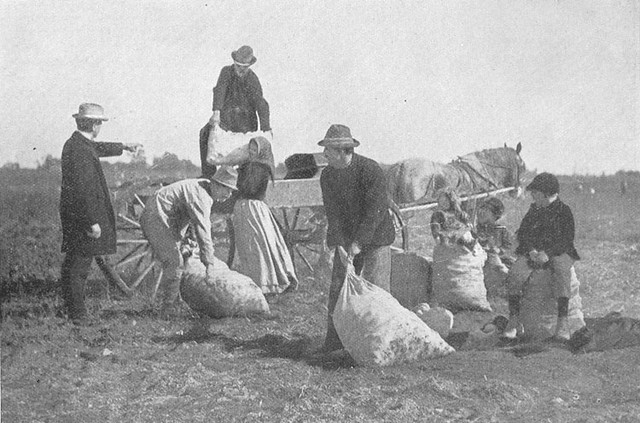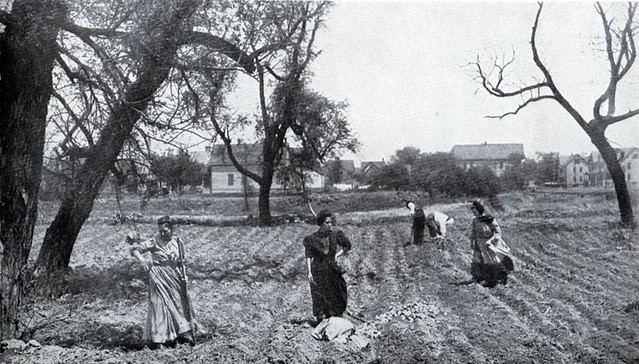While searching the WNY Heritage Press site recently for old Buffalo pics, I found this short article chronicling a new city initiative when Buffalo was poor and jobs were scarce - urban farming! Here's the link - The Depression of 1893-1897 Buffalo's Urban Farms.
In 1895, Mayor Edgar Boardman Jewett, newly elected mayor of Buffalo, proposed that Buffalo follow the example Detroit which had utilized vacant land in the city for use by poor people as farms. The city would solicit the loan of such land from landowners, prepare the fields by having them plowed, and provide the seeds.
During the depression in 1893 Mayor Pingree of Detroit was nationally known for his reformist policies.
Pingree expanded the public welfare programs, initiated public works for the unemployed, built new schools, parks, and public baths. He gained national recognition through his "potato patch plan," a systematic use of vacant city land for gardens which would produce food for the city's poor.
Today Detroit is the country's poorest city. In Michigan, elected officials on a state and local level now embrace what was widely successful over a hundred years ago - see, Farm Report - From Detroit. The issues swirling around poverty and food security in Buffalo - the country's third poorest city - are just as severe and the human impact is just as acute. Buffalo followed Detroit's public policy success in 1893. Why not in 2009?
Creative Class • Shrinking Cities • Saturdays in the Neighborhood


